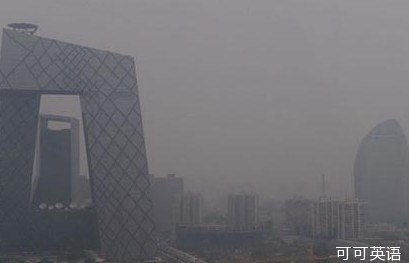
Panasonic is the first international company to announce it will pay employees it sends to China a premium to compensate for dangerous levels of pollution.
松下(Panasonic)宣布将向派往中国的员工发放津贴,以补偿严重污染对他们的危害,成为开此先河的第一家国际公司。
The Japanese group unveiled the changes yesterday, citing the high levels of PM2.5 in some urban Chinese areas.
这家日本集团昨日公布上述变动,并将中国部分城市高水平的PM2.5值列为依据。
Particulate matter of 2.5 micrograms or less can enter the human blood stream through the lungs and contribute to asthma, cancer or heart trouble.
直径小于或等于2.5微米的颗粒物能通过人的肺部进入血液,加剧哮喘、癌症以及心脏疾病。
Employees sent to China by Panasonic typically receive a more generous remuneration package because it is classed as a “hardship posting” – but until now no explicit mention has been made of growing concern about the dire air quality.
松下派往中国的员工一般都能得到比较优厚的薪酬待遇,因为外派中国属于“苦差”,但此前松下公司没有明确提到人们对中国可怕的空气质量越来越大的担忧。
Smog has become a focus for public discontent, particularly in prosperous urban areas such as Beijing, which in February suffers a week-long stretch of “hazardous” air.
雾霾已成了中国公众不满的焦点,尤其是在北京这类繁华都市,该市曾在2月遭遇连续一周的“有害”空气。
It has also been cited by expatriates as a chief reason for leaving the country.
它也是外籍人员列举的离开中国的主要原因之一。
The company did not disclose the number of Japanese employees in China covered by the scheme or the amount they will receive. Chinese employees will not receive the extra payment.
松下没有透露上述津贴方案所覆盖的在华日籍员工人数或具体金额。中国员工将不会得到额外津贴。
Other companies have been quietly increasing the benefits they offer to expat staff but Panasonic is the first publicly to acknowledge the problem.
其他公司最近都在悄悄提高驻华外籍人员的福利,但松下是第一家公开承认这一问题的公司。
“That’s the first time I’ve heard any company be quite so brazen about it,” said Robert Parkinson, head of Beijing-based recruiter RMG Selection. “The normal style would be to dress it up as a ‘developing country allowance’.
“这是我第一次听到有公司在这个问题上如此直白,”罗迈国际商务咨询(RMG Selection)的罗伯特•帕金森(Robert Parkinson)说,“通常的作法是将其粉饰成‘发展中国家津贴’。”
“It’s a bit like saying we know we are exposing you to something that could be life-threatening. We’re going to admit it and compensate you for it.”
“这有点像是在说,我们知道我们让你暴露于足以危及生命的环境,我们将承认这一点,并就此给予你补偿。”
At the opening of China’s parliament last week, Premier Li Keqiang said his government would wage “war on pollution”. Days later an official analysis of 74 Chinese cities revealed that only three met national air quality standards.
在上周中国全国人大年会的开幕式上,中国总理李克强表示他的政府将“向污染宣战”。几天后,一份涉及中国74个城市的官方空气监测报告显示,仅有3个城市达到了国家空气质量标准。
The issue has gained more international attention since 2008 when the US embassy installed a pollution-monitoring system on its roof in Beijing to detect the level of PM2.5.
2008年美国大使馆在其驻京办公楼的屋顶上安装了一套污染监测系统,监测北京空气中的PM2.5浓度,这个问题自此引起更多国际关注。
The government has made some efforts to clean up polluting factories and steel mills and has also pledged to try to limit the number of cars on the country’s roads. Last year it outlined a plan to cut emissions and polluting steel capacity in the populous east, but attempts to regulate pollution are difficult given the country’s reliance on coal burning.
中国政府已经在整顿重污染工厂和钢厂方面作出了一些努力,并承诺会尝试限制道路车辆数目。去年中国政府出炉了一个计划,拟在人口密集的东部地区减少排放,降低造成污染的炼钢产能,但由于中国对燃烧煤炭的依赖,整治污染的尝试相当困难。












